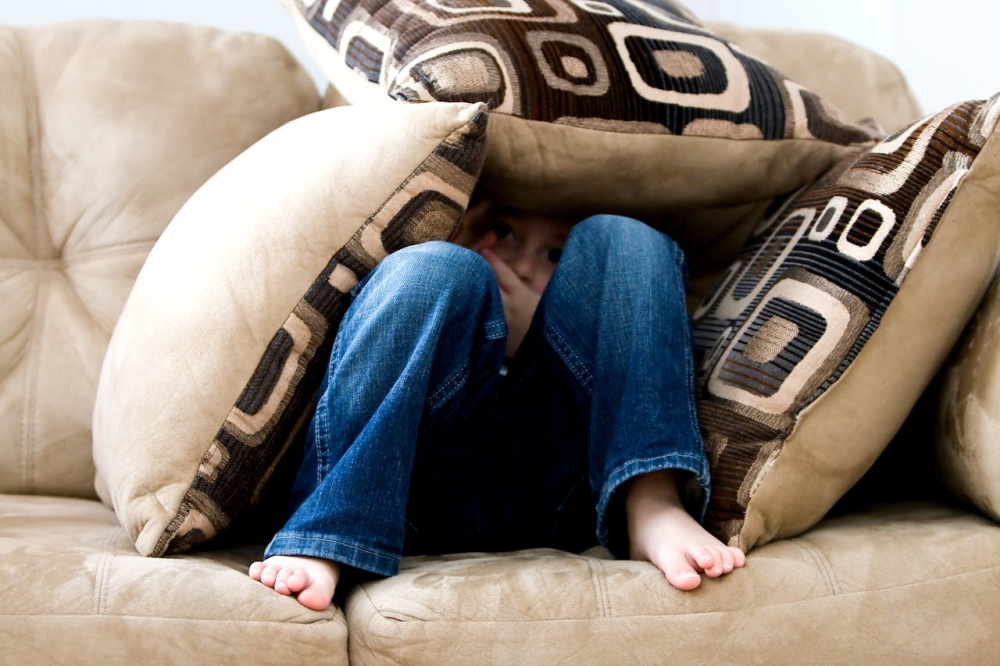One word I’ve noticed appearing regularly in articles, media, and personal conversations is fear. Especially when cultural values, politics, and future are the topics under discussion.
Voters mention that fear is a reason—or even the reason—they are voting for a particular candidate.
Some mention being fearful of what lies ahead if we do not take climate change seriously; others worry what will happen if solutions to climate change take billions of dollars away from more significant problems.
Some express fear if the wrong political party wins the presidency and consolidates power in Congress.
Others fear—and I’ve often heard this from those claiming to be Christians—what kind of world their children and grandchildren will be forced to live in.
There’s the fear of civil war or political violence.
Many are also fearful about international realities and tensions, like encounters with autocratic and unfriendly nations in possession of nuclear weapons. Or forever wars that seem to have no possible end. Some fear what will happen to Ukraine if the U.S. stops military aid, and how that loss might surge into warfare and a loss of freedom in other parts of Europe. Others fear what will happen if America keeps meddling in parts of the world, including Ukraine, that need to be allowed to solve their own problems, even if we don’t like their solutions.
The list could go on.
For evangelical Christians, this isn’t the first time this faith community has been fearful. John Fea, the distinguished professor of American history at Messiah University, writes that, “The history of evangelicalism in America is shot through with fear.” He traces that history to tell the story of how American evangelicals have repeatedly responded fearfully, and the sad results that followed. Fea insists, correctly, that the Faith “also contains an alternative,” which has often been embraced by only a minority.
And truth be told, there are reasons for concern in this list. I would prefer for my grandchildren to grow up in a comfortable world. A world where freedom is expanding around the globe, where conflict, wars, and violence are minimal, and where economic prospects for workers are expansive. But it’s possible, even likely, given some trends, this will not occur. I would argue, though, that for this reality to incite fearfulness in me is to be less than faithful as a follower of Jesus. The tomb remains empty, Christ is Lord, and if God in his providence ordains hard times for my grandchildren, I know several things. I know it will be, ultimately, somehow for Christ’s glory and their good. I know the Spirit will provide all the resources they need in hard times. And I know that that the comfort I have enjoyed is the anomaly since Christ promised that following him would not be easy.
Being faithful is antithetical to being fearful of the future; we are called to trust and hope. “To be interested in ‘the future’ is a symptom,” Alan Jacobs quotes T.S. Eliot saying in 1927, “of demoralization and debility.”
When people say they are fearful, they have lost hope. They hope things won’t turn out as they fear, but they aren’t expressing contentment from having a hope that will not disappoint. And confusing the tragic for the apocalyptic is never helpful.
For many Americans their hope used to be related to achieving The American Dream. Even if things are bad right now, the idea was, they could still succeed with hard work, thrift, some education, and wise budgeting. That dream is in its death throes, as more citizens see that the economic system is stacked against them. Fearful of being stuck, perhaps living in their parents’ basement forever, hope for the future they have dreamed of slowly slips away.
It is part of Christian doctrine to believe that followers of Jesus have a hope for a renewed world when Christ’s Kingdom is fulfilled. Lately, I’ve noticed, however, that belief is seen as applying to an eternal future, and so is out of reach. Right now, before that day, things are so messed up we fear what’s coming. And fear naturally ends up shaping our lives, thinking, and choices.
This should not be.
Do not call conspiracy all that this people calls conspiracy, and do not fear what it fears, or be in dread. But the Lord of hosts, him you shall regard as holy; let him be your fear, and let him be your dread. He will become a sanctuary.(Isaiah 8:12-14)
You are my servant,
I have chosen you and not cast you off,
do not fear, for I am with you,
do not be afraid, for I am your God;
I will strengthen you, I will help you,
I will uphold you with my victorious right hand. (Isaiah 41:10)
God gave us a spirit not of fear but of power and love and self-control. (2 Timothy 1:7)
In a fallen world being afraid makes sense. In fact, it makes no sense not to be afraid with enemies like the flesh, the world, and the devil. Yet, throughout Scripture God’s people are told not to be afraid. Why? The facts are these: The tomb is empty, Christ is King, the gospel is true, and God’s kingdom has come. If we believe this, being afraid makes no sense at all.
Almighty Father.
Be our light in the darkness, O Lord, and in your great mercy defend us from all perils and dangers of this night; for the love of your only Son, our Savior Jesus Christ. Amen. (Book of Common Prayer)
Photo credit: Photo by Pixabay: (https://www.pexels.com/photo/kid-hiding-on-pillows-262103/)



